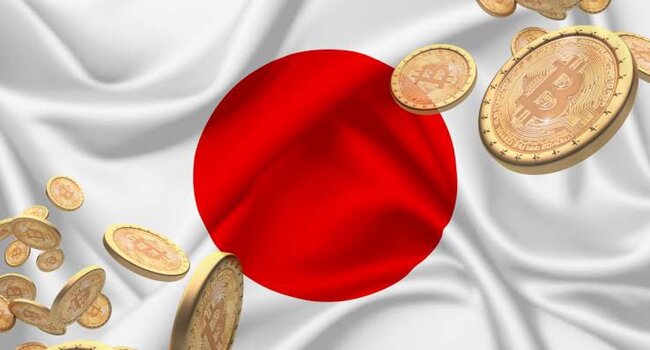Highlights:
- Japan is set to ban crypto insider trading in cryptocurrencies and will impose fines on illegal gains from trades.
- The rules will strengthen oversight and define which actions count as violations.
- Japan plans to protect investors and reduce market risks by regulating digital assets.
Japan is set to ban insider trading in cryptocurrencies by introducing a surcharge system for violators. According to the new regulations, traders who gain profits through unlawful trades shall be fined depending on the profit made. The government will allow the Securities and Exchange Surveillance Commission (SESC) to investigate suspicious cryptocurrency activity. The commission may, in severe instances, suggest criminal prosecution.
Japan's financial regulator may ban crypto insider trading, Nikkei reports. The move aims to protect investors and align crypto regulations with traditional finance. Details are still emerging.#crypto #Japan #regulation #insidertrading pic.twitter.com/1koZIPV4Iz
— CoinNewsSpan (@CoinNewsSpan_) October 15, 2025
Currently, the Financial Instruments and Exchange Act (FIEA) does not regulate cryptocurrencies, leaving traders mostly unregulated. The Japan Virtual and Crypto Assets Exchange Association (JVCEA) oversees self-regulation, though experts report it remains weak. The new framework seeks to explicitly prohibit trading using nonpublic or undisclosed information. Traders who purchase tokens during a public listing or exploit an exchange security defect might now violate the law.
Authorities hope stronger enforcement will protect investors and increase market transparency. In an effort to expand digital finance, the Financial Services Agency is also planning to license the first yen-backed stablecoin in Japan. Lawmakers are weighing these changes to strike a balance between innovation and safety.
Crypto Insider Trading Rules Introduced to Strengthen Market Oversight
A working group will complete detailed rules through the Financial Services Agency (FSA) by the end of 2025. After this, the government intends to present amendments to the FIEA at the following parliamentary session. The new rules will define which trading behaviors count as violations. The FSA is also reviewing plans to classify cryptocurrencies as financial products under the Financial Instruments and Exchange Act, with a bill expected in parliament next year.
Several cryptocurrencies do not have a clearly identified issuer, making insider identification difficult. Governments need to define who can access sensitive data as well as who can control markets. Even with these issues, the rate of crypto adoption in Japan remains high. As of June 2025, on-chain value increased 120% per year. In addition, the number of Japanese with crypto has increased to about 12.41 million or 15% of the adult population, compared to 9.17 million last year. Analysts forecast the number could reach 19.43 million by the end of 2025.
In our next preview chapter of the 2025 Geography of Crypto Report, we explore APAC's acceleration as the world's fastest-growing crypto region. From India's market leadership to Japan's regulatory shifts, see how distinct national pathways are shaping adoption:… pic.twitter.com/TRwXN1wlWB
— Chainalysis (@chainalysis) September 24, 2025
Clear rules are essential to address existing risks. There is no single method of self-regulation that will stop unfair practices and protect the investors completely. Through specifying what is not allowed, the authorities will ensure that markets become more predictable and credible. Furthermore, these regulations may promote institutional involvement in digital assets.
Leadership Changes and New Policies Could Affect Japan’s Crypto Market
Sanae Takaichi, the next potential prime minister of Japan, is a proponent of technological innovation and digital exploration. She has championed the policies that endorse technological sovereignty, such as blockchain innovations. Her leadership may promote more investment by reducing interest rates, implementing tax cuts, and removing more monetary policies.
The FSA also aims to regulate crypto under the FIEA, shifting it from the Payment Services Act. This change aligns cryptocurrency rules with securities laws and improves investor protection. Authorities want to reduce scams, unregistered operations, inaccurate disclosures, and security risks on exchanges. The agency is also examining how virtual assets can be treated similarly to securities, aiming to strengthen investor protection.
Growing adoption and institutional interest put pressure on policymakers to act quickly. If authorities succeed, cryptocurrencies could gain a stronger reputation as legitimate investment options. Meanwhile, Japan aims to combine innovation with investor safety, ensuring markets remain fair and transparent.
Best Crypto Exchange
- Over 90 top cryptos to trade
- Regulated by top-tier entities
- User-friendly trading app
- 30+ million users
eToro is a multi-asset investment platform. The value of your investments may go up or down. Your capital is at risk. Don’t invest unless you’re prepared to lose all the money you invest. This is a high-risk investment, and you should not expect to be protected if something goes wrong.






